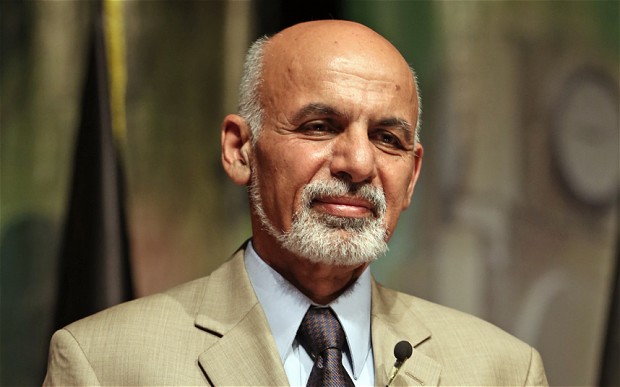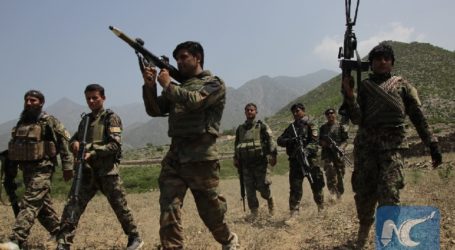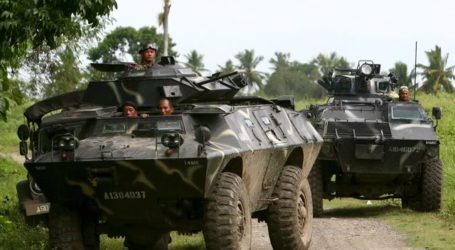Kabul Peace Summit Begins as Truck Blast Toll Reaches 150


The Kabul process aims to build an inclusive peace in Afghanistan, with the support of neighboring countries and the international community, says President Mohammad Ashraf Ghani.
Kabul, Afghanistan, 12 Ramadan 1438/7 June 2017 (MINA) – An international peace conference began in the Afghan capital Kabul on Tuesday with a minute-long silence in remembrance of terror victims as the death toll in last week’s truck bombing rose sharply to 150.
Representatives from 25 countries and alliances, including the U.S., Russia, China, India, Pakistan, NATO and EU are at the Kabul Initiative Peace and Security Cooperation conference that aims to find an “Afghan-led and Afghan-owned” resolution of the decades-long conflict that has left tens of thousands of people dead, Anadolu Agency reported.
However, one of the main stakeholders in the war — the Afghan Taliban — is not present at the conference that hopes to achieve a lasting peace process with the armed group.
The day-long conference at the Ministry of Foreign Affairs comes after a spate of bombings and violence in the capital that saw a massive suicide truck bombing on Wednesday near the German and Turkish embassies, followed by violent clashes between authorities and protesters a day later on Thursday, and multiple suicide attacks over the weekend at a cemetery that left several more people dead.
The situation in the country continues to be tense. In fact, a rocket allegedly fired by Taliban fighters landed inside the Indian embassy compound as the conference was underway, according to Indian media NDTV. Taliban took responsibility for the rocket attack, but claimed to have hit NATO headquarters in the capital.
In his welcome address, President Mohammad Ashraf Ghani confirmed the death toll in the truck bombing had risen sharply, from 90 to 150; over 300 others remain injured.
Ghani also said up to 75,000 Afghans lost their lives during the last two years in the ongoing violence in the country.
What does Pakistan want?
He spoke of his desire to make peace with the Taliban. “We want to talk peace with the Taliban, but [this is] not open-ended opportunity,” he said.
The president also used the opportunity to lash out at Pakistan and accused it of unleashing an “undeclared war of aggression” against Afghanistan.
He said Afghanistan had offered Pakistan a vision of prosperity by linking south and central Asia through trade, investment and peaceful co-existence; however, he alleged Pakistan still believes it could sponsor and use terror as a controllable tool that can be switched on-and-off to suit its goals in the country.
“This cannot continue. We will not let it continue. We want peace with Pakistan. We want to be able to trust Pakistan. And we want the chance for friendly, cooperative relationships that will reduce poverty and promote growth on both sides of the frontier.
“Our problem and our challenge, is that we cannot figure out what is it that Pakistan wants. What will it take to convince Pakistan that a stable Afghanistan helps them,” Ghani told the conference that was attended by Pakistan’s Additional Secretary Tasnim Aslam.
“I extended a hand of friendship towards Pakistan under difficult environment, but it was rejected,” he recalled. Ghani was referring to the bold step he had taken by visiting Pakistan amid tense ties when he took charge in September 2014. He was given a rare and warm welcome at the Pakistani army’s headquarters; however, the thaw in ties was short lived as Kabul blamed Islamabad for a deadly string of terrorist attacks in 2015.
He urged Islamabad to help Kabul achieve peace and prosperity.
11,000 foreign militants
He also called on the international community to make good on its promise to end state sponsorship of terrorism. “The Kabul process aims to build an inclusive peace in Afghanistan, with the support of neighboring countries and the international community,” he said.
Earlier, Afghan intelligence agencies had blamed the Taliban’s Haqqani network — that is allegedly backed by Pakistani military’s spy agency ISI — for the recent attacks in Kabul.
Ghani also acknowledged that “Taliban-sponsored terrorism is creating a platform that is bringing terrorists to Afghanistan and Pakistan”. He said that up to 11,000 foreign militants had allegedly arrived in Afghanistan in the last two years to fight for Daesh.
“Muslims are the innocent victims of what rebels claim to be a religious war,” he added.
Meanwhile, Ambassador Cornelius Zimmerman, NATO’s senior civilian representative in Afghanistan, expressed his full support for the peace process.
“I am pleased to see the will and determination of the Afghan government to hold the Kabul Initiative for Peace and Security Cooperation conference at a time when a dark week in the history of Afghanistan has just passed.
“This demonstrated the unwavering resolve of the government for fight against terrorism and for ensuring peace for all Afghans,” Zimmerman said in a statement. (T/RS5/RS1)
Mi’raj Islamic News Agency (MINA)






